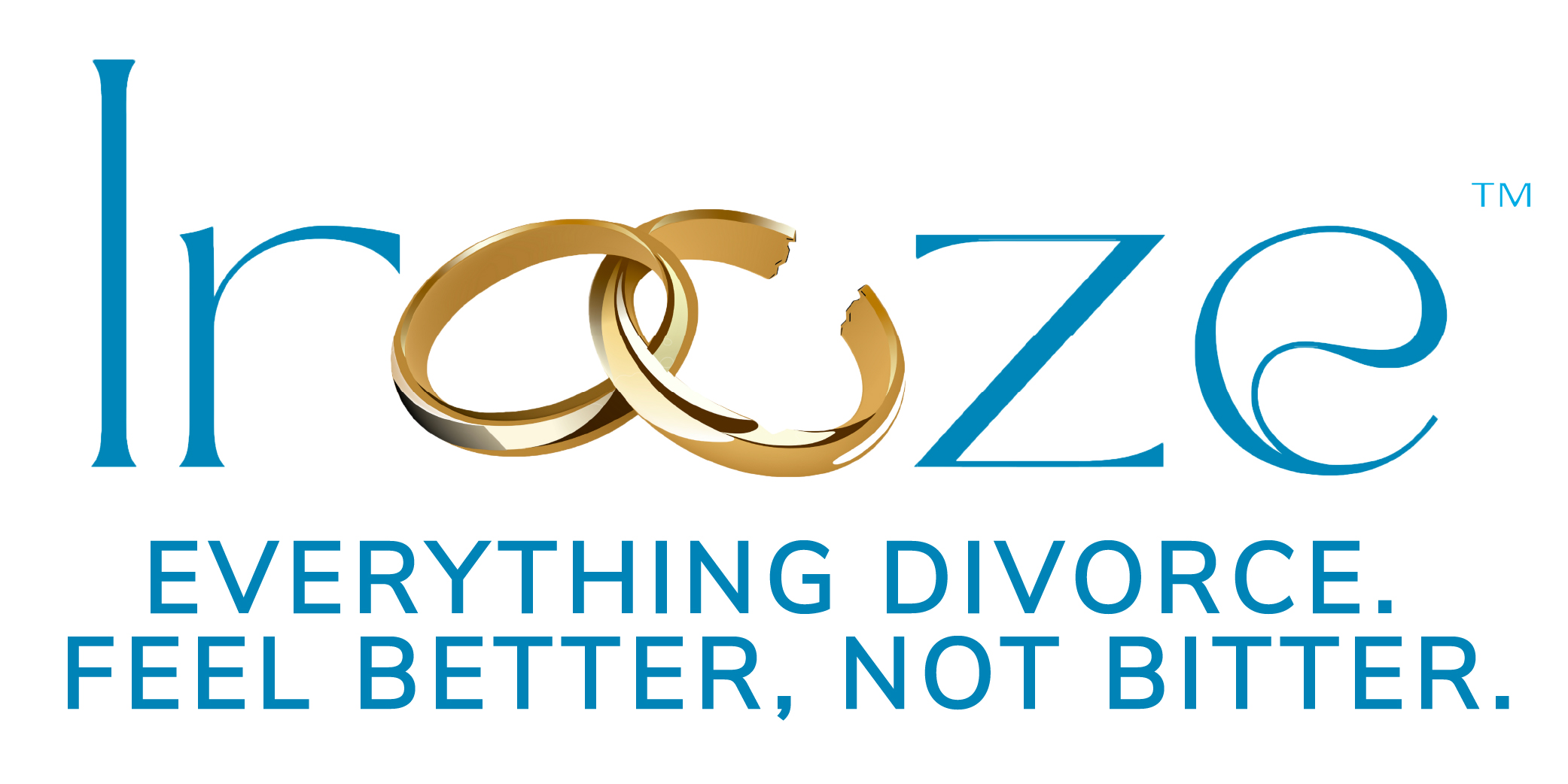Divorce is one of the most life-altering events anyone can experience, second only to the death of a loved one. Even when the decision was yours and you know it was the best choice to make, the aftermath can still leave you reeling, feeling lost and unsettled, especially when the reality of facing life alone (for now) hits. For many people, adjusting to a living space that they once shared with another, or to a new living space alone, along with a change in routines and daily rhythms, can feel overwhelming.
The new uncertainty of the future, when before the seeming predictability of life may have felt reassuring and stabilizing, whether the relationship itself was fulfilling or filled with strife, can present you with a new range of challenges. However, consider this time to be a new chapter, your blank canvas with the potential for rediscovery and personal growth; an opportunity to pursue a new life according to your dreams, values and unique individuality supported by the new perspective and lessons you take with you out of the divorce and marriage.
According to research, divorced adults report significantly higher levels of loneliness compared to married individuals—with one large U.S. study finding that divorced people scored about 50% higher on loneliness scales.
In this article we’ll explore the challenges you may face in adjusting to life on your own after a divorce, and you’ll find new insights and tools to help you embrace the opportunities this stage may present you with and create a new, fulfilling structure to your life.
Coping With the Emotional Impact of Living Alone After Divorce

Even when divorce was a positive step, or something you needed to do for your own benefit, the changes that happen with separation can create unforeseen challenges and cause emotional turmoil. Here are four common ways you may feel impacted after divorce:
Empty Home Syndrome
The void left behind by the absence of your former spouse can leave you feeling unsettled. An empty home, where once there was activity and action, can amplify feelings of loneliness.
One way to reduce the emotional impact of an empty home is to gradually remove or repurpose items that are strongly connected to your ex like photos, shared decorations, etc. and replace them with things that reflect your current values or interests.
Broken or Changed Routines
Marriage naturally establishes routines within a household; morning coffee, shared meals, chores, evening relaxing rhythms. After a divorce, that structure dissipates, leaving behind a sense of loss and of not knowing what to do with yourself. It can feel destabilizing and like there is a looming void around you.
Loss of Companionship
Even when the marriage was in trouble or there was high conflict, there usually still remains a sense of familiarity that which goes missing after separation. The absence of that companionship, of having someone to speak to or share common moments with may add to feelings of isolation and loneliness.
Self-Doubt and Fear of the Future
All that new alone time can leave you with too much time to think and ruminate, which can lead you in negative directions that question your self-worth. Asking yourself questions like: “What did I do wrong? Am I enough? Will I be alone forever?” can erode your self-confidence, leaving you fearing the uncertainty of the future, feeding into anxiety of what may lie ahead.
It’s crucial to understand that all of these feelings are a normal and temporary part of the adjustment process to a new reality. These feelings are closely tied to the grieving process, which is what is to be expected at the end of a relationship—you are grieving the life that was, the loss of the expectations for your future and security you felt, the loss of companionship and connection.
This is not a sign of weakness, rather it is a strength and courage that you are on this journey of healing. It is a stepping stone on the pathway to building a new life. With self-compassion, you can cultivate awareness of these emotional waves, and make choices that will lead you to healing.
Longitudinal studies show that many people gradually regain emotional stability over time: feelings of loneliness tend to decrease substantially after 1–2 years post-divorce as routines solidify and social support strengthens.
Effective Ways to Adjust to Life Alone After Divorce

The challenges of adjusting to life after divorce are real, and thankfully there are many different kinds of effective strategies you can take on to help you navigate the shift into a new life and new routines. A multi-faceted approach focusing on self-care, establishing new routines and creating new connections within and with others will help you heal, thrive and develop new purpose moving forward.
Reclaim and Redefine Your Space: Your home is meant to be your sanctuary, and it is often a reflection of our identity, sense of peace, and security. It may feel that everywhere you turn, you are faced with reminders of your marriage and your former spouse. One of the first and most empowering steps you can take is to rearrange or redecorate your living space.
Sometimes all you need to do is to rearrange some furniture, or change up the wall art, but by all means, if you want to slap a fresh coat of pain of the walls or replace furniture in your house, go ahead! It’s your space to recreate as you wish, to make it reflect who you are now, post-divorce. If you can, create some areas that are dedicated to activities that you enjoy or where you can relax, such as a reading nook or a small home gym, or for anything that you love to do.
Establish New Routines: One of the hardest things to adjust to after a divorce is the sudden halt to those daily routines that you relied on. It’s time to rebuild that structure and establish new daily habits that will support you with a sense of purpose and stability.
Create morning rituals to start your day off with intention, such as exercise or time to drink your coffee in peace. Morning rituals help us to gather our thoughts and set the tone for the rest of the day. Evening rituals are equally important, especially if there were routines you had as a couple. Those are times you may be most vulnerable to feelings of loneliness or isolation, and so be creating enjoyable and relaxing activities, such as movie nights, baths, or other forms of self-care, in the evenings will help you to counter the rise of those feelings.
Rediscover Yourself: It’s not uncommon for individuals to feel they have lost touch with themselves during the course of their marriage, and so divorce is often the time for people to rediscover and reconnect with who they are. The identity you developed during your marriage may not feel authentic anymore, so this is an opportune time to explore and discover who you are now.
Journaling can be a powerful tool for self-reflection, helping you organize thoughts, reduce anxiety, and track healing progress but note, for some people, writing deeply about hurt too early may intensify distress.
Consider returning to old hobbies or activities that you may have left by the wayside during your marriage, or try something new that you’ve always wanted to explore and never did! Don’t be afraid to experiment; it may take some trial and error before you find what lights you up, but that’s okay! Trial and error are exactly how you will learn what works for you now and what doesn’t.
You may want to turn to some kind of professional support to help you navigate the emotional intricacies of healing after divorce. Divorce coaches in particular are trained to help you with all of the various aspects that come along with the end of a marriage.
Build a Support Network: You don’t have to go through this alone. A strong support system is crucial to maintaining a positive mindset, connection with others and encouragement. Your support system should be varied and can be made up of close friends, family, support groups and professional support. Reach out to those friends and family who have been standing by you, and even consider those friends or social circles you may have grown distant from during your marriage.
Divorce support groups or communities of other people in similar situations will be helpful in providing an outlet to share experiences, gain perspective and insight and find new connections. If you need more personalized support, seeking out the support of divorce coaches and counselors can be useful as well.
Remember, reaching out to others is not a sign of weakness, rather it is a strength to acknowledge the need for support, encouragement and guidance.
Find Healthy Companionship: With these new activities you’re trying to engage in, you’re likely to meet new people too! That’s great, since connection is a need we all have. It doesn’t mean you need to jump into a new romantic relationship at this time, but some kind of companionship will help to fill that void that may be left after divorce. Attending social events, trying new classes or volunteering in your community are great ways to make new connections. Or if you have wonderful people already around you, focus on deepening and nurturing those connections and spending time with them.
Prioritize Self-Care and Your Mental Health: All of this doing and creating is great for your healing, but it’s crucial not to neglect the self-care for your mental and emotional well-being during this adjustment period. You can reinforce your sense of balance and resilience by maintaining healthy practices such as:
- Mindfulness through meditation, deep breathing or journaling to help ground you, support emotional healing, and center your thoughts.
- Exercise and nutrition to support your physical health which will in turn bolster your emotional and mental well-being, by improving energy levels and boosting your mood.
- Talking to a divorce coach or a counselor if you feel overwhelmed by loneliness, anxiety or depression. A professional who specializes in divorce support will have the tools to help you process those intense emotions.
Rebuilding your life in the aftermath of divorce is not an easy journey but it’s one that can be rewarding and fulfilling in its own right, and lead you on new adventures of self-discovery, building community and supportive relationships. Look at it as an opportunity for new growth and personal empowerment.
Rediscovering Yourself After Divorce: Embrace a New Life

While divorce is an unquestioningly painful and difficult experience, you can reframe your perspective by considering it the start of a new chapter for your life, an opportunity to write a new story that is entirely yours. Shift your outlook from one of loss to one of self-discovery and growth. Start by asking yourself: “What do I want my life to look like from now on?” This isn’t about considering the past to be a waste or even about erasing it, rather it’s the foundation upon which you can learn what you are aligned with, what works for you and what doesn’t, where your boundaries are and what your dreams are for the future.
Being alone is not the same as being lonely. Remember, you can feel lonely in a room full of people that you don’t connect with, and feel fulfilled and connect with yourself when you are alone. This time after your divorce is a chance to rediscover your inner strength, your resilience and your authentic self. It’s a time of new-found independence where you can make your own decisions about where you go, what your living space looks like, who you spend time with and what you do with your time.
It helps to set small goals to bring new meaning or exploration into your life, and use those as the building blocks toward your grander aspirations and desires. Remember to always celebrate each step, no matter how trivial you think it is! Celebrating your wins will continue to build your strength and perseverance.
Stay open to the unexpected, you never know where you will find joy or new connection. This period after divorce is one of transition, transformation and infinite possibility.
The challenges of navigating life after your divorce don’t have to define you. They are difficult, and they can be overwhelming, but they can also represent the opportunity for creation of new routines, new connections and moreover, new growth and transformation.
Remember, there are no timelines on this healing journey, and each individual’s journey is unique to them. The important thing is not to focus on what is lost, but rather on the possibilities of what you can add to your life and create moving forward. With each small step forward, you’ll find a new opportunity and new direction to embark upon. It’s with openness to change, patience and self-compassion you’ll find your strength and resilience for a new fulfilling and meaningful life.
The Irooze Divorce Directory has a wide range of resources to help you on this journey, including divorce coaches to speak with. If you’re not sure where to start, take our free Self-Assessment Quiz and you’ll be eligible for a free Strategy Session with one of our Divorce Specialists who can help you clarify and identify next steps in your journey.
Disclaimer:
The information provided in this article is intended for general informational purposes only and is not a substitute for professional advice, diagnosis, or treatment. The content of this article should not be used as the sole basis for making decisions regarding your well-being. Always consult with a qualified professional before making any significant changes to your life or treatment plan.





